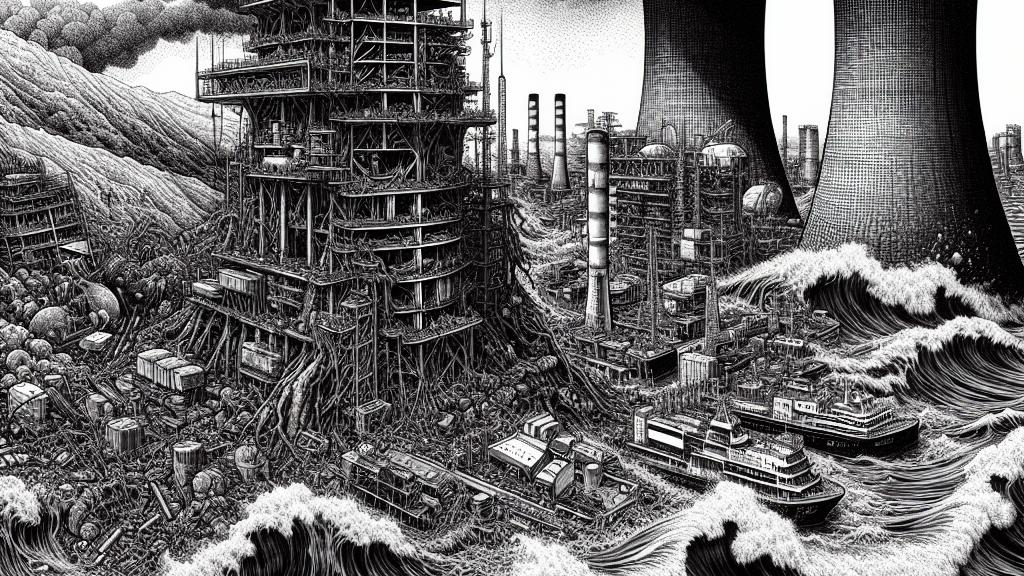Fukushima Cleanup: The Robot Revolution Starts With A Meltdown Mission!
Overview
- A groundbreaking robot embarks on an unprecedented mission to extract melted fuel from Fukushima's reactors, marking a new era in cleanup technology.
- This immense operation, likened to a marathon, requires years of resilience, innovation, and problem-solving amidst radioactive challenges.
- Safety stands paramount as teams of engineers and robots navigate through perilous environments, symbolizing hope for a secure future.

The Earthquake that Shook Japan: A Prelude to Disaster
On March 11, 2011, at precisely 2:46 PM, Japan was jolted awake by a massive earthquake measuring 9.0 on the Richter scale, a colossal force that set off a chain of cataclysmic events. The tremor triggered a tsunami that swelled to towering heights, crashing into the Fukushima Daiichi nuclear power plant like a vengeful torrent. This deluge breached protective seawalls, leading to catastrophic failures in the cooling systems of three reactors. What unfolded next was a disastrous meltdown that released a toxic cloud of radioactive materials, forever altering the landscape. Today, this site is home to approximately 880 tons of melted fuel debris, a stark reminder of nature's wrath and the monumental task that lies ahead in decommissioning, expected to take 30 to 40 years—a marathon, indeed, not a sprint.
Robotics to the Rescue: A New Dawn for Cleanup
Fast forward to today, and a remarkable robot, engineered for the challenges posed by this radioactive wasteland, prepares to make history. Imagine a robot, sleek and futuristic, entering a once-treacherous reactor area—its mission is clear yet daunting: to retrieve minute samples of molten fuel debris that might hold the key to understanding the meltdown. It’s like sending a brave knight into a dragon’s lair, armed not with sword and shield but with cutting-edge technology. This robotic marvel extends with precision, navigating through a maze of obstacles, and carefully collects samples weighing less than a small paperclip. Each retrieval, though minuscule, symbolizes a triumph over adversity, and yet, challenges remain. Previous attempts hit snags, such as misaligned components—mere hiccups in a greater journey toward clarity and safety.
Navigating the Future: A Commitment to Safety and Innovation
As this robotic endeavor unfolds, it signifies more than another technological achievement; it stands as a beacon of resilience and hope. Experts emphasize the significance of analyzing these samples, suggesting they may unveil long-hidden truths about the meltdown events and guide future cleanup strategies. The commitment shown by the Tokyo Electric Power Company and Japanese authorities to prioritize safety and meticulous planning will be the foundation upon which successful decommissioning is built. With each incremental success, the daunting challenge transforms into a series of victories, illustrating how innovation and perseverance can illuminate even the darkest paths. As we look to the future, the collaborative efforts of engineers, policymakers, and robotics promise a step toward a safe and secure energy landscape, casting a renewed light of optimism on the horizon.

Loading...